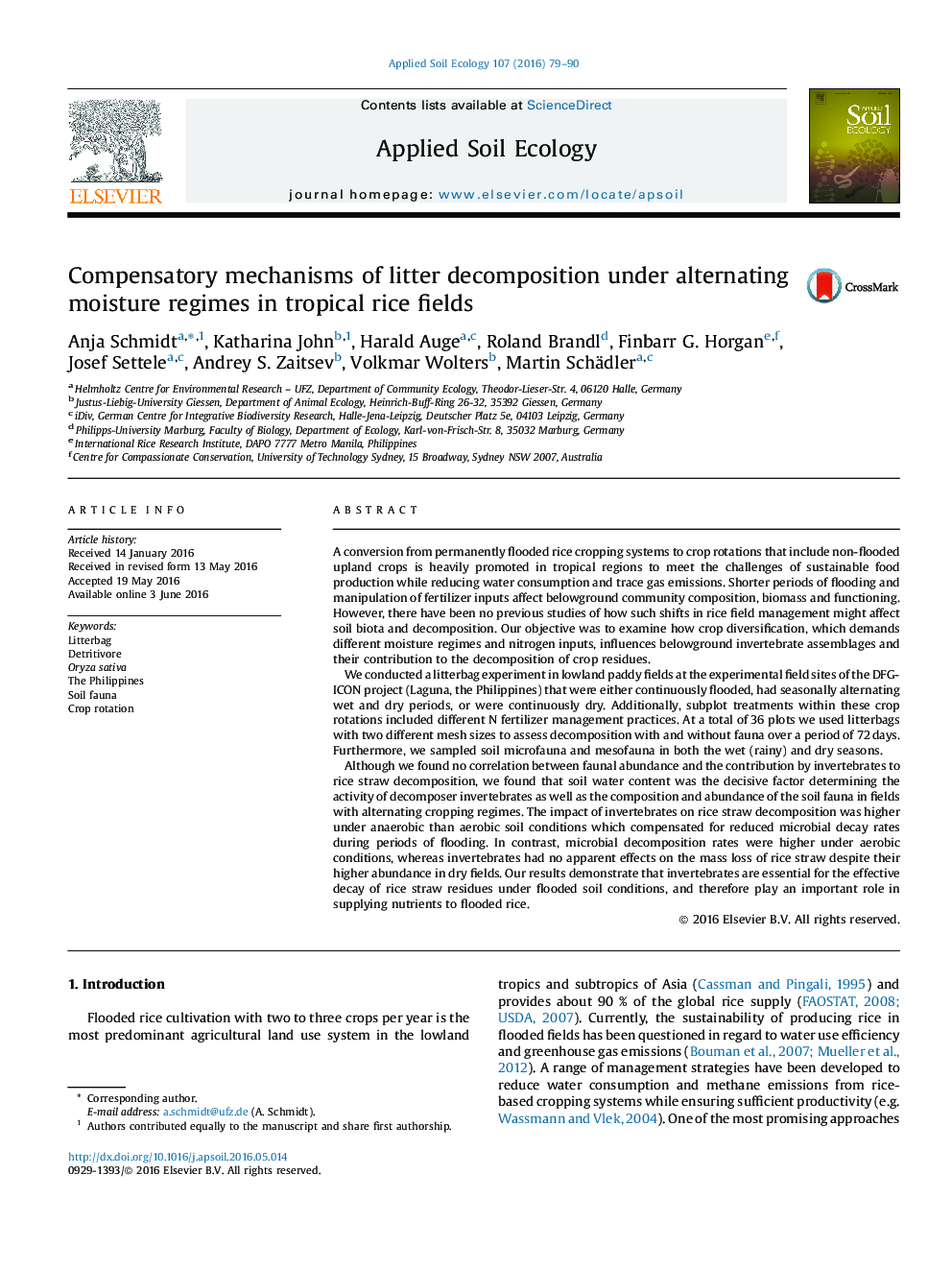| کد مقاله | کد نشریه | سال انتشار | مقاله انگلیسی | نسخه تمام متن |
|---|---|---|---|---|
| 6297596 | 1617776 | 2016 | 12 صفحه PDF | دانلود رایگان |
- Significantly higher abundance of soil mesofauna under aerobic field conditions.
- Invertebrates substantially contributed to straw decomposition in flooded fields.
- No contribution by invertebrates to rice straw decomposition in non-flooded fields.
- Highly accelerated microbial decomposition rates under aerobic soil conditions.
- No correlation between invertebrate-driven decomposition and soil fauna abundance.
A conversion from permanently flooded rice cropping systems to crop rotations that include non-flooded upland crops is heavily promoted in tropical regions to meet the challenges of sustainable food production while reducing water consumption and trace gas emissions. Shorter periods of flooding and manipulation of fertilizer inputs affect belowground community composition, biomass and functioning. However, there have been no previous studies of how such shifts in rice field management might affect soil biota and decomposition. Our objective was to examine how crop diversification, which demands different moisture regimes and nitrogen inputs, influences belowground invertebrate assemblages and their contribution to the decomposition of crop residues.We conducted a litterbag experiment in lowland paddy fields at the experimental field sites of the DFG-ICON project (Laguna, the Philippines) that were either continuously flooded, had seasonally alternating wet and dry periods, or were continuously dry. Additionally, subplot treatments within these crop rotations included different N fertilizer management practices. At a total of 36 plots we used litterbags with two different mesh sizes to assess decomposition with and without fauna over a period of 72Â days. Furthermore, we sampled soil microfauna and mesofauna in both the wet (rainy) and dry seasons.Although we found no correlation between faunal abundance and the contribution by invertebrates to rice straw decomposition, we found that soil water content was the decisive factor determining the activity of decomposer invertebrates as well as the composition and abundance of the soil fauna in fields with alternating cropping regimes. The impact of invertebrates on rice straw decomposition was higher under anaerobic than aerobic soil conditions which compensated for reduced microbial decay rates during periods of flooding. In contrast, microbial decomposition rates were higher under aerobic conditions, whereas invertebrates had no apparent effects on the mass loss of rice straw despite their higher abundance in dry fields. Our results demonstrate that invertebrates are essential for the effective decay of rice straw residues under flooded soil conditions, and therefore play an important role in supplying nutrients to flooded rice.
Journal: Applied Soil Ecology - Volume 107, November 2016, Pages 79-90
